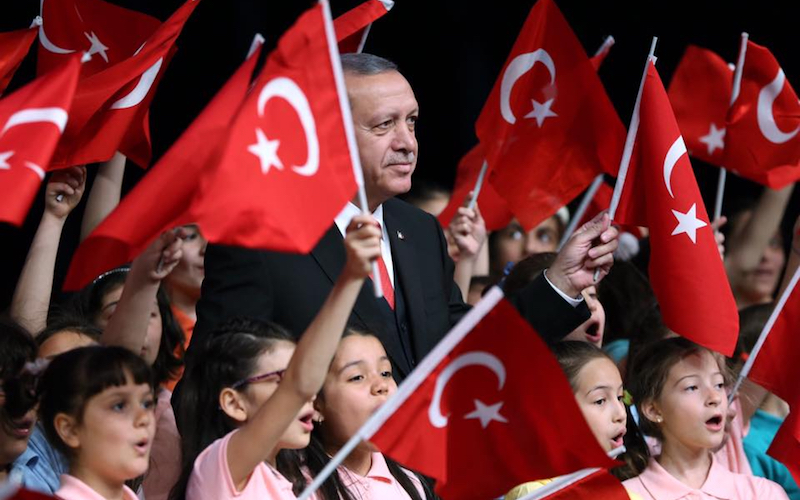
Turkey’s Democracy Crisis
Turkey, split between Europe and Asia, with an overwhelming Muslim population in a functional democratic state, held a referendum on the powers of the President. Turkey’s referendum for constitutional change on April 16, 2017 resulted with 51% ‘yes’ to 49% ‘no’ vote in favour of President Tayyip Erdoğan.
The referendum was one of the most contested elections in Turkish history. In particular, the Supreme Electoral Council of Turkey (YSK) raised objections against the legitimacy of the results stating their discovery of 1.5 million non-stamped ballots. This confusion could cause a greater rift in Turkish politics and society leaving a lasting effect on the country’s democratic future. The election was also followed by foreign news outlets, especially in Europe and the United States commenting that Turkey’s ambitious efforts for a secular democracy, building on the legacy of Mustafa Kemal Atatürk, had come to an end.
On the face of it, the referendum has shown that a majority of voters showed their willingness for a more centralized regime around the position of the president, which one could argue represents the rise of a neo-sultanate in Turkey.
Certainly, with this election, the debate around the value of democratic institutions for and in Turkish society has reappeared, following a long period of democratic development since the last military led government at the time of 1999 general election. As had been the case in the Brexit referendum and the recent US presidential election, the post-referendum survey on CNN TÜRK shows that most educated voters within major urban areas voted ‘no’ while those less educated in rural areas, impoverished neighbourhoods and villages voted ‘yes.’
This almost equal distribution between ‘yes’ and ‘no’ also represented Turkey’s ongoing struggle between modernisers who have demanded a more pluralist political system and traditionalists who seek the return to the ‘one man’ rule seen in the classical Ottoman era (prior to 1920). Principally, the new amendments to the constitution signal an unprecedented strengthening of presidential powers. With these new amendments, the office of the president becomes the paramount decision-maker by gaining strong control over the executive, legislative and judicial bodies, leaving parliament in a subordinated position.
At the same time, there are serious objections to the fairness of the election. Just in the beginning of counting, the international Turkish language news agency, Anadolu Agency (AA), reported a big difference in favour of ‘no,’ against the amendment. Beyond this, there were inconsistent reports from media outlets creating further confusion as to the result. All these developments left people in doubt about the entire counting process.
The main objection to the results began after it was reported that the YSK had confirmed 1.5 million ‘non-stamped’ (verified) ballots as valid. Some leading opponents including Ümit Özdağ and Meral Akşener from the (Milliyetçi Hareket Partisi, MHP or Nationalist Movement Party) as well as Eral Aksünger from the (Cumhuriyet Halk Partisi, CHP or Turkish People’s Party) objected to the results. Given that an important number of votes were non-stamped, opponents claimed that the results could not be accepted. Additionally, citizens protested against the YSK through social media platforms and street demonstrations. Yet, the head of YSK, Sadi Güven, defended the results by declaring that “unless there is proof that they came from outside, the non-stamped ballots and envelopes are valid.”
However, the opposition parties continued to fight the referendum result. On 17 April 2017, Bülent Tezcan from CHP arranged a press conference and stated that the opposition did not accept the results and would apply every legal mechanism to have the referendum result nullified. He maintained that the YSK’s own rules explicitly state that: ‘any non-stamped ballot cannot be accepted and is considered as invalid.’ Hence, the YSK had breached its own regulations by confirming non-stamped votes. That means, according to Tezcan, the YSK became ‘partial’ to the AKP and the ‘yes’ campaign. Tezcan also claimed that the YSK overlooked this fraudulence because annulling these votes could cause the ‘no’ vote to lead. On the same day, the CHP made a formal application for annulling the referendum result but it was rejected by the YSK on April 19, 2017.
Democratic crisis
In this regard, the former AKP founder and deputy-prime minister Abdüllatif Şener’s comments on Halk TV are particularly interesting. After declaring his deep suspicions about the fairness of the referendum, Şener declared that, under these conditions, Turkey could not be defined as a democratic country any more. He said that for the first time since its 150 years of modernisation, Turkey has taken a backward step and showed its reluctance for democratization. The positive scenario is unlike Europe because Turkish modernization was always a top-down movement because the intellectual-bureaucratic elite has constantly guided the nation through a democratization process without a major democratic movement amongst the population.
Now as a result of this referendum, for the first time the Turkish people might understand the importance of democracy and the institutions that depend on it. Turkey now has a powerful president and a limited parliament. Is it the end of Mustafa Kemal Atatürk’s secular Western- orientated Republic, and the beginning of an authoritarian and arguably more Islamic-based rule? Or, is it an opportunity for Turkey to solve its major domestic and foreign problems? Undoubtedly, these tensions are powerful and put Erdoğan under a great deal of pressure. Any mistake by Erdoğan can completely detach Turkey from its secular, democratic history and can destroy its international image as a secular-democratic role model in the Muslim world.

